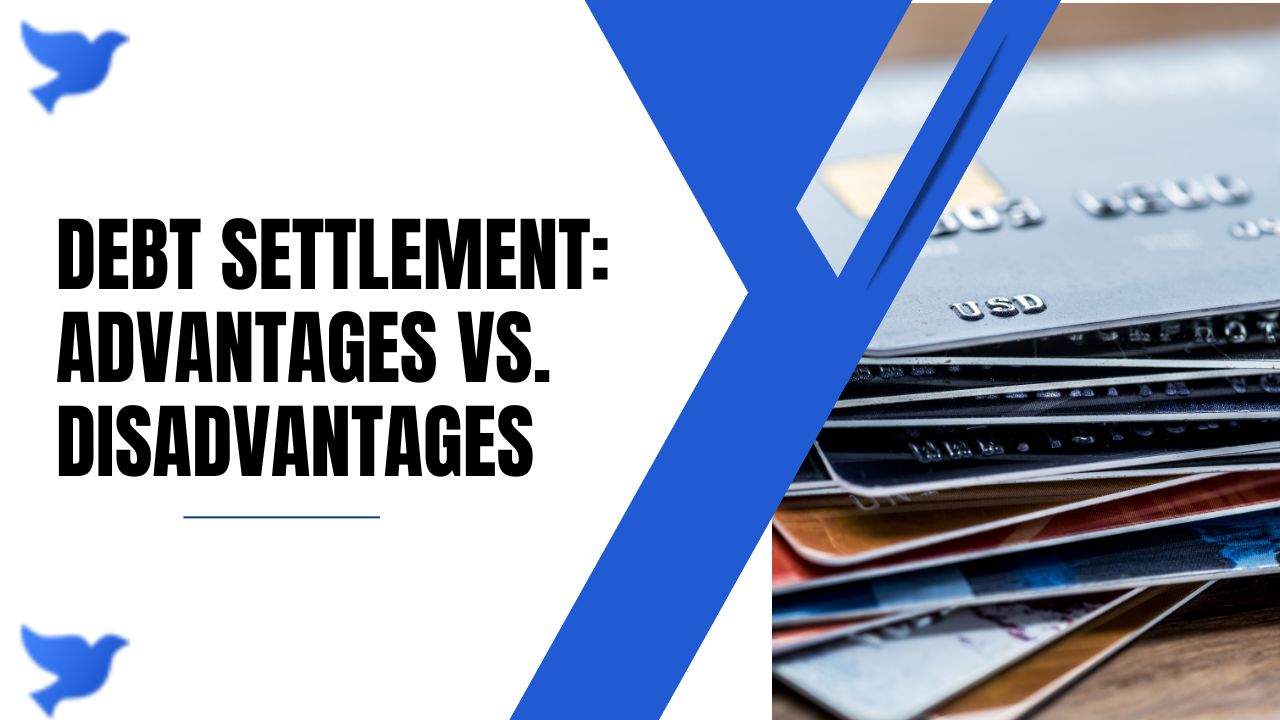Debt Settlement: Advantages vs. Disadvantages
A debt settlement procedure might help if you have trouble making credit card payments, medical expenses, personal loans, or other debt instalments. The benefits of debt settlement are plenty when executed properly.
Is debt settlement worth it? Understand the main Debt settlement pros and cons before you proceed with this option. If you’re still uncertain, check out our blog post on Is Debt Settlement the Best Choice for Getting Out of Debt? for deeper insights.
The Advantages of Debt Settlement
You can quickly reduce your total debt and save money by settling for a much lower amount than the actual dues when negotiating with creditors. Let us examine some of the main advantages of a settlement contract.
Accelerating the Process of Repayment
The fact that debt settlement quickens the repayment procedure is one of its main benefits. Instead of distributing payments over an extended period, it may be possible to arrange for a single, smaller lump sum payment.
Reducing the Total Amount Payable
If the negotiations between the debt settlement company and creditors are successful, creditors will work out a lower amount than what you were initially owed. This implies you might save thousands on payments and interest charges and have your debt paid off sooner.
Plan for Simplified Repayment
Debt relief options include combining your bills into one payment, saving you the trouble of managing several lenders and payments. Either combine into a single lump sum pay-out or divide into multiple agreed settlements. This can streamline the repayment procedure and make it easier to deal with.
Debt settlement vs. bankruptcy
Your loan account becomes delinquent after a prolonged period of non-payment. At this point, you could face legal action from your creditors for the outstanding balance. Your creditor might be open to ending the case and resolving issues outside of court if you offer to settle the debt. For more information on effective debt management, check out our guide on 6 Simple Steps to Effective Credit Counseling and Debt Management.
Another drawn-out and complex legal procedure that can be required if your debt becomes too much to bear is bankruptcy. On the other hand, looking into possibilities other than bankruptcy is a good idea. These alternatives may consist of settling your debt and settling disputes with your creditors.
The Disadvantages of Debt Settlement
Pursuing debt settlement has disadvantages in addition to its possible advantages.
Negative impact on credit score
You probably already have a history of missing payments that have lowered your credit score if you find yourself in a situation where you need to settle your debt.
It may also make it difficult for you to get hired for specific positions or find housing.
Accumulation of Interest Charges and Late Fees
Stopping payments while discussing a debt settlement might hurt your credit score, and incur late fees and interest. The extra expenses can cancel out any savings from paying down loans at a lower rate.
Frauds within the Debt Settlement Industry
Not all businesses that offer debt settlement services fulfil their commitments. Debt settlement risks are there, and some companies even take advantage of the situation by collecting hefty upfront costs in exchange for little or no tangible benefits.
Avoid high upfront fees for guaranteed results.
Companies that charge exorbitant upfront costs should be avoided, especially if the payments are piling up quickly, with no discernible improvement in debt relief.
Contact Experts for Debt Settlement Help
For people who are having trouble paying off their debt, debt settlement may be a good choice. Based on your degree of debt, your present work status, and your financial objectives, our professionally trained and certified debt counsellors will evaluate your current financial status and provide tailored Debt settlement advice.
Contact us by sending email to support@christiandebtservices.com.

